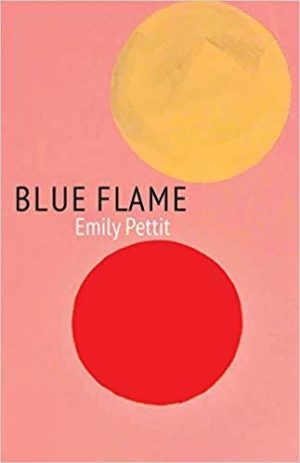In Their Own Words
Emily Pettit on “TO LEAVE HALF A MIND IS A GIFT YOU SOMETIMES GIVE YOURSELF”

TO LEAVE HALF A MIND IS A GIFT YOU SOMETIMES GIVE YOURSELF
Nothing I am looking at is moving.
It's believed in order to indicate stability
that one must control one's hand held
here by one's side. The temperament
in your own hand a baby riding a tortoise.
I drew this bear so you would love me
differently. She sang that end for a spider.
For such a night. He kept that mud
hoping to make better. You went that way
to get over there. Real and imagined
faces along and along. A flood in the brain.
We are entering the longest covered bridge.
We are standing in the hottest spot.
In the distance the tallest mountain,
the tallest tree. Further in the distance
the oldest trees, the longest mountain chain.
Nearby the largest lake, the largest cliff.
These ideas do not walk in order to gush.
Like the parts of a clock that regulate
and drive the time we see, there is always
something even smaller going on.
Like how sometimes when you look sad,
people turn away. I was never a horse
with other people. I was only a horse
alone.
On "TO LEAVE HALF A MIND IS A GIFT YOU SOMETIMES GIVE YOURSELF"
This poem was built as sort of a grief kaleidoscope. Something working to sort and scatter different interior patterns of pain and exterior patterns of perspective. Over a three year period a number of people that I loved died and grief became what felt like a constant. The poem explores different ways one might work to be living in grief, with grief, despite grief, against grief, for grief. The poem then works to zoom out in order to examine how perspective might complicate or simplify or something else entirely, the feelings involved in grieving. Perspective here takes form through a list of superlative landscapes. This thought is messy, but somehow an engagement with the notion of a superlative feels related to how we might describe or reach to understand feelings. The most painful feeling, the tallest tree. The poem then addresses the idea or fear that sometimes other people will not want to connect with you when you are grieving or in pain. And lastly the poem addresses the choice one might make to keep their pain private. It is my hope that the poem presents, but does not judge this choice.



